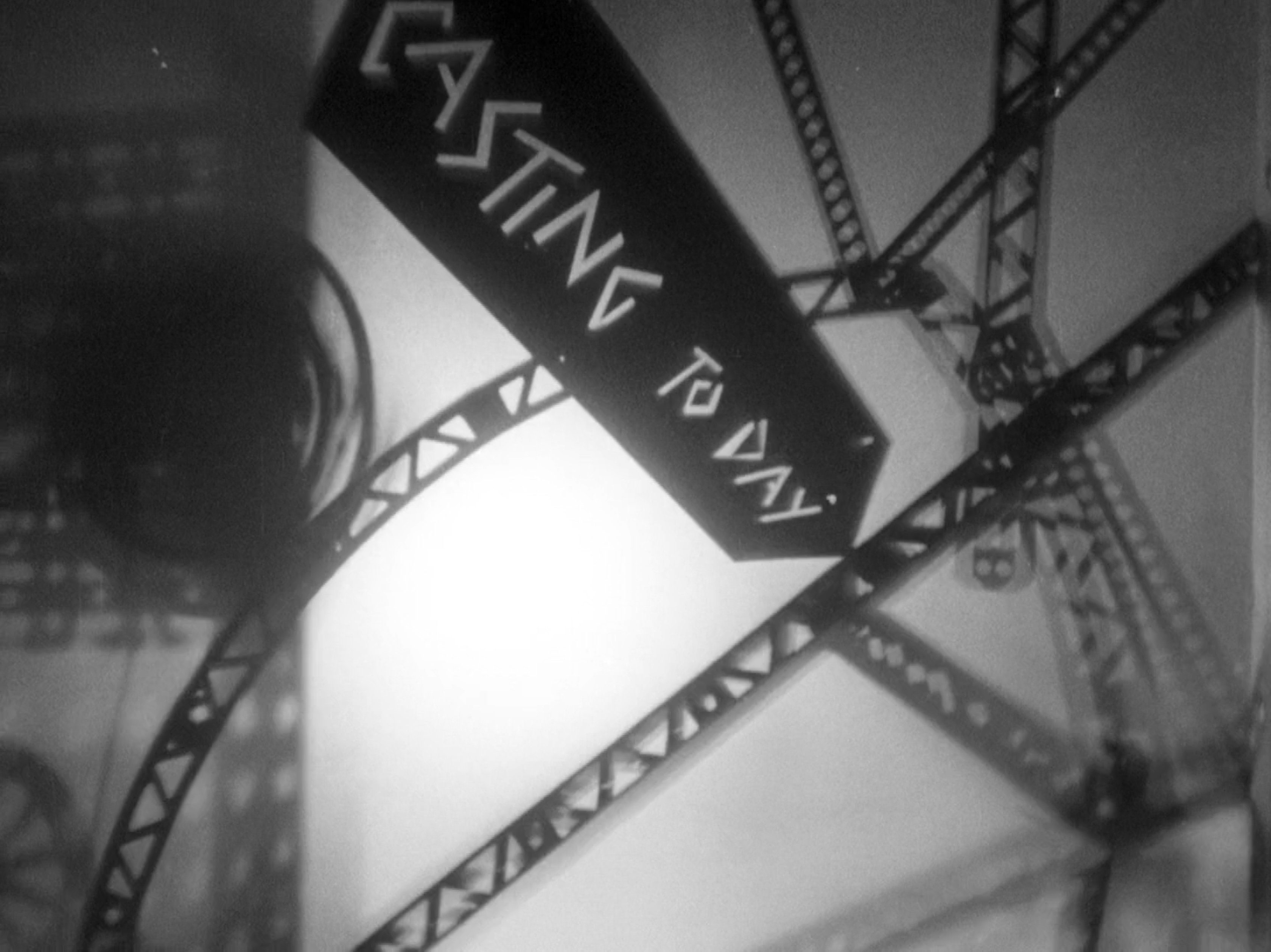Two Films by Robert Florey
Tuesday, July 8, 2025 at 7pm
361 Stagg Street, Suite 407, Brooklyn

The Life and Death of 9413, a Hollywood Extra, Robert Florey and Slavko Vorkapich, 1928, digital projection, 13 mins, with live accompaniment by Julia Kim
The Crooked Way, Robert Florey, 1949, 16mm, 90 mins
Robert Florey was a remarkable yet still underappreciated figure of Hollywood’s earliest decades. Born in Paris in 1900, he began his career as a journalist, and would throughout his life serve as a meticulous chronicler of the industry and its art. Little of his historical writing has been translated into English, though it was greatly admired by those who, like Florey himself, lived through Hollywood’s formative years. Kevin Brownlow "regarded him as the Oracle of Delphi as far as film history was concerned," while Louise Brooks praised his ability to discern the manifold particulars of the period through the mists of gossip and publicity (“You didn’t copy it out of Photoplay!”).
As a filmmaker, Florey’s apprenticeship began in France when he served as an assistant to Louis Feuillade in 1920. With the encouragement of Max Linder, he arrived in Los Angeles the following year as a correspondent for Cinemagazine. He found work almost immediately, assisting directors like Henry King, John Stahl, Josef von Sternberg, and King Vidor. But it was a side project from this period, The Life and Death of 9413, a Hollywood Extra, that would prove to be one of his most significant accomplishments.
An unabashedly avant-garde film made for a budget of ninety-seven dollars in the heart of the American studio system, A Hollywood Extra was co-directed with fellow expat Slavko Vorkapich and shot by Gregg Toland (then an assistant cameraman at MGM, better remembered today as Citizen Kane’s cinematographer). Produced by night in Vorkapich’s kitchen, its chiaroscuro lighting provided by a single 400-watt bulb, A Hollywood Extra dramatizes the ill-fated trajectory of a would-be star turned nameless background actor. The industry town is here rebuilt with papier mâché sets made from household junk, envisioned with Expressionist angles, handheld camerawork, and disjunctive editing. An immediate sensation, Florey and Vorkapich’s after-hours project quickly became one of the most widely-seen American experimental films of its time. It even found a champion in Charlie Chaplin, who hosted a private screening at his home for an audience of Tinseltown luminaries.
After A Hollywood Extra, Florey directed such varied fare as musical-comedy The Cocoanuts with the Marx Brothers and pre-Code horror Murders in the Rue Morgue with Bela Legosi. Noir cheapie The Crooked Way represents still another dimension of Florey’s career: as a prolific helmer of B-movies (he worked in nearly every Hollywood studio of the day). Though now rarely screened, it has long been cherished by genre aficionados. Violent, cynical, tenebrous—The Crooked Way is echt noir, the saga of an amnesiac military vet who, recalling nothing of his past but his name and hometown, returns to Los Angeles in search of clues to his identity. Historian William K. Everson, one of those who helped maintain its reputation, noted that The Crooked Way was both a late example of the form and “classically traditional, almost to the point of parody,” but ultimately distinguished by Florey’s direction and the extraordinary contributions of Hungarian-born cinematographer John Alton.
Print of The Crooked Way courtesy "Movie Mike" Olshan.
Tickets - Pay what you can ($10 suggested donation), available at door.
Please note: seating is limited. First-come, first-served. Box office opens at 6:30pm. No entry 10 minutes after start of show.
